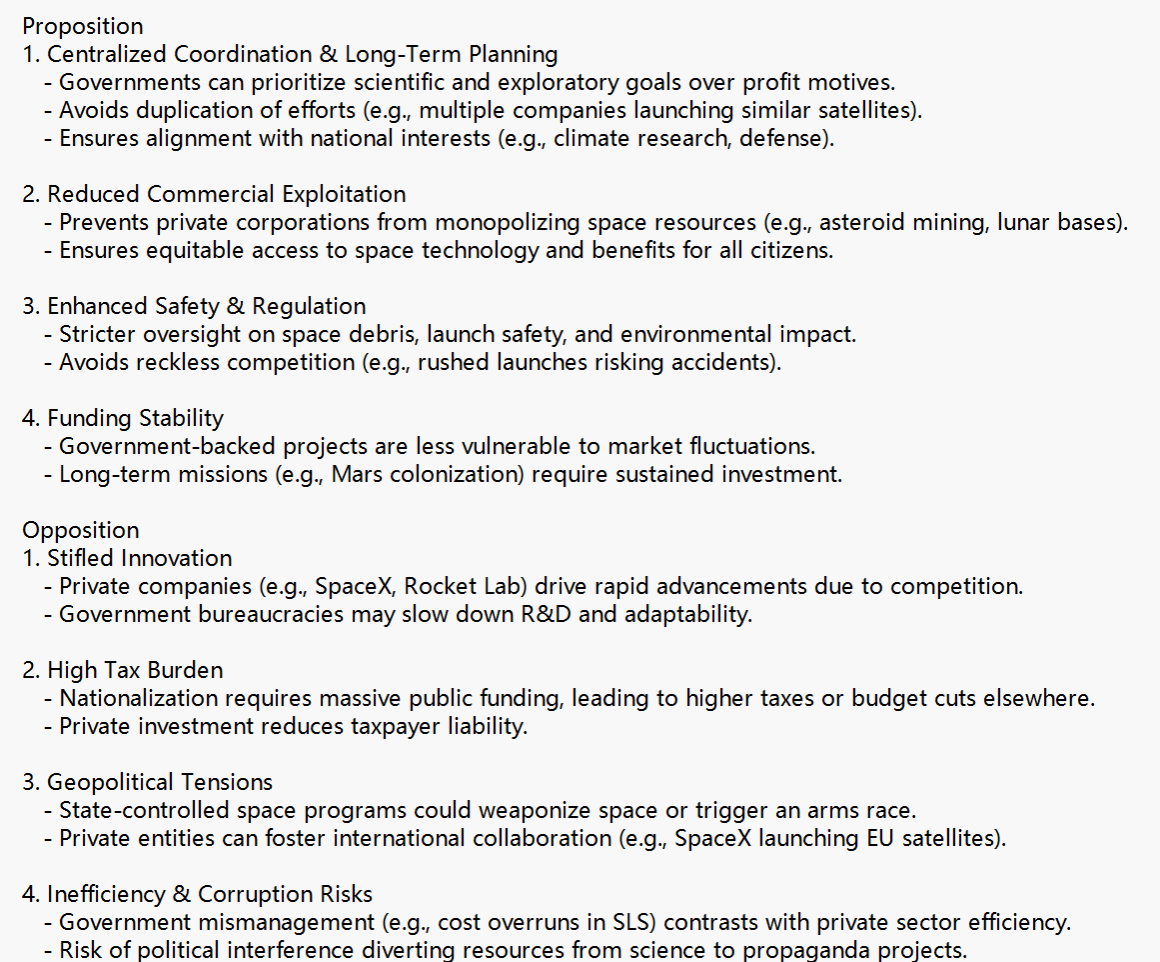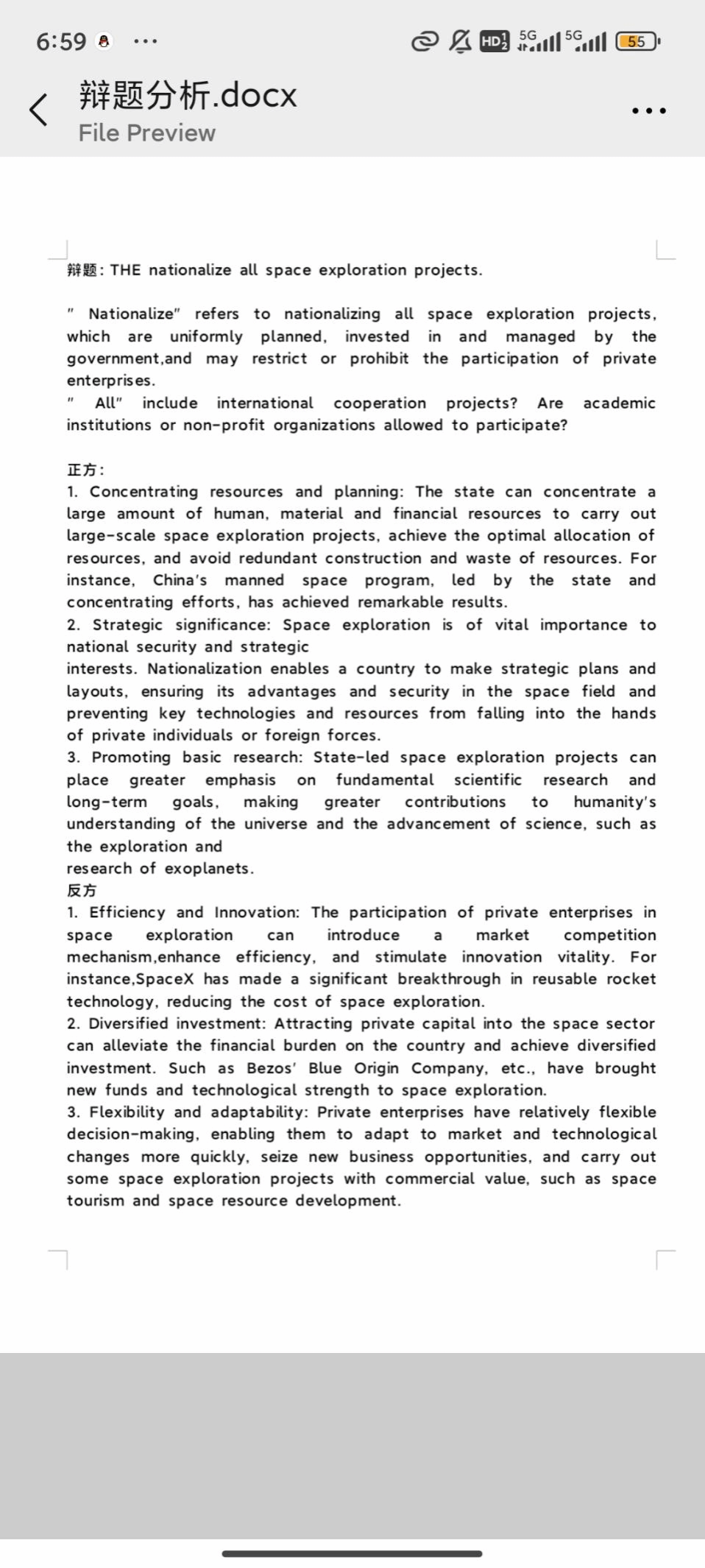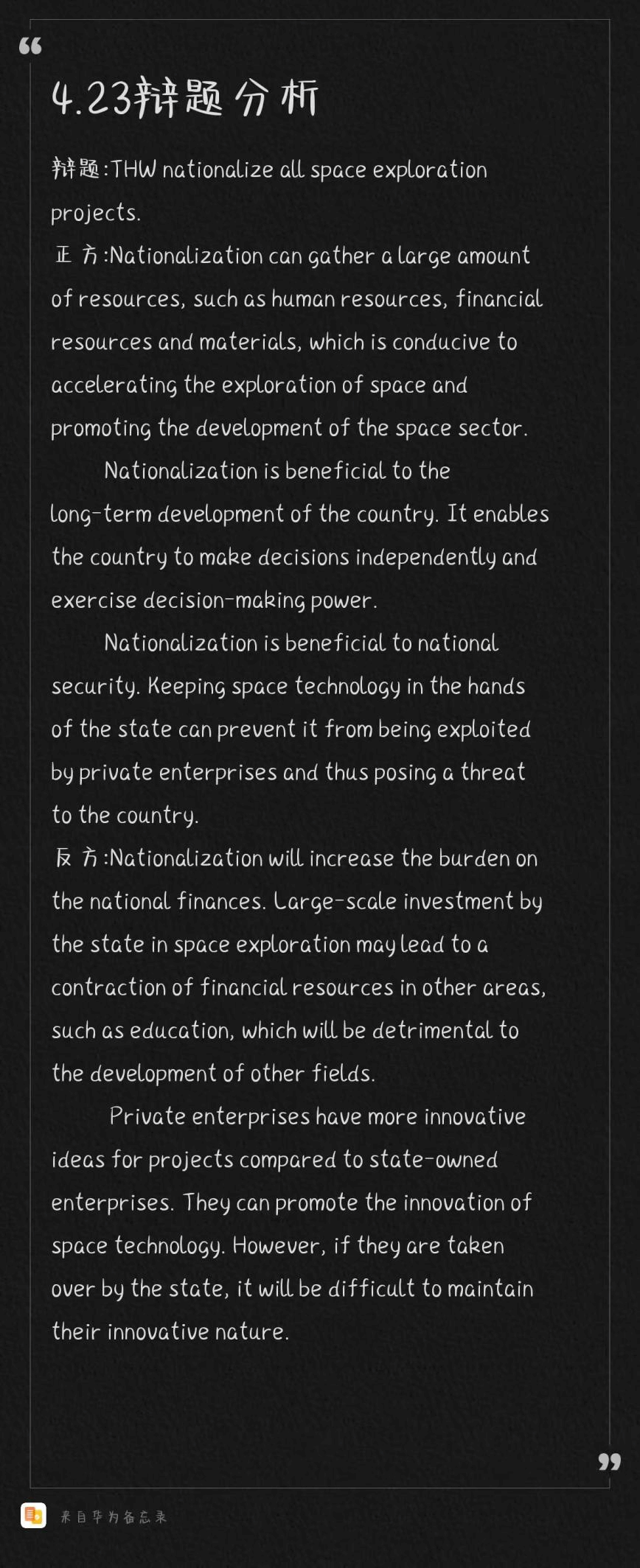思辨角辩论部周常
4月23日,负责人肖天一布置了作业,辩论部叶嘉瑜,王瑾瑜,张乔依,刘赫,汪清清5位成员完成并提交作业。
作业题目:
THW nationalize all space exploration projects.
Government (Gov) Viewpoints:
1.Strategic Security and Resource Coordination
① Avoid Redundant construction : Currently, there is a problem of redundant investment by multiple countries/private enterprises in global space exploration (such as the overlapping resources of SpaceX and NASA's Mars program). After nationalization, funds and scientific research forces can be concentrated, reducing waste
② National Security Assurance : Space resources (such as rare metals and orbital resources) have strategic value. Nationalization can prevent private enterprises from monopolizing or foreign forces from controlling key areas.
③ Long-term Planning Advantage : As shown in China's "National Space Science Medium and Long-Term Development Plan (2024-2050)", the state's leading role can systematically lay out long-term goals such as deep space exploration and planetary defense
2. Maximizing public interests
① Technology Accessibility : Nationalization projects are more likely to convert space technologies for civilian use (such as satellite communication and meteorological monitoring), avoiding the patent barriers of private enterprises from hindering public welfare
② Clear research orientation : The government can give priority to investing in basic sciences (such as planetary formation research) rather than research driven by commercial returns, promoting the expansion of the boundaries of human knowledge
③ Risk Control capability : National institutions have greater credibility in the assumption of responsibility for space accidents and ethical reviews (such as the ecological impact of planetary colonization).
3. Economic and Social Benefits
① Employment Stability : National projects can provide long-term and stable high-skilled positions and prevent private enterprises from laying off staff due to profit fluctuations (referring to the lesson of the shutdown of the US space shuttle program).
② Industrial Chain upgrading : Concentrated investment can drive the upgrading of upstream and downstream industries such as materials science and artificial intelligence, forming an ecological chain of "space economy"
Opposition (Opp) Viewpoints:
1. Efficiency and Innovation Issues
① Bureaucratization and inefficiency : The decision-making process of national institutions is lengthy (such as the budget approval cycle of NASA), making it difficult to adapt to the rapid iteration of aerospace technology development .
② Suppressing private vitality : Enterprises such as SpaceX and Blue Origin have significantly reduced launch costs (such as recyclable rocket technology) through commercial competition. Nationalization may stifle the innovative impetus of the market.
2. Finance and Priority Disputes
① Huge financial burden : Space exploration projects are extremely costly (for example, the US Apollo program cost over 25 billion US dollars), and nationalization may crowd out funds in areas of people's livelihood such as education and healthcare .
② Priority mismatch : There are still over 700 million people living in extreme poverty worldwide. Does investing in space exploration conform to "justice of urgency" (such as the ethical controversy of the debate topic "Prioritizing poverty or exploring space") .
3. Obstacles to International Cooperation
① Geopolitical conflicts : Nationalization can politicize space exploration (such as the space race between China and the United States) and hinder international scientific research cooperation (such as the multi-country co-construction model of the International Space Station) .
② Unfair resource allocation : Developing countries may be excluded from the nationalization system due to technological gaps, exacerbating the global technological divide.
作业展示:



